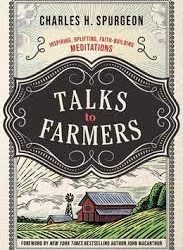Ever since the Reformation put the Bible into the hands of everyman, opponents of the truth have decried the availability of the Bible to be read and understood by more than just an elite clergy. The pre-Reformation scholar William Tyndale made it his goal to translate the Bible into English so that even a plowboy could know more than the priest. The combination of the invention of the printing press and Martin Luther’s German Bible helped fulfill Tyndale’s dream for the German people. In a short time, the emphasis on education promoted by the Reformers, combined with new translations into the language of peoples in different nations resulted in an educated and biblically literate laity.
About a century later, English philosopher Thomas Hobbes expressed his horror at the prospect of an “everyman theology”:
After the Bible was translated…every man, nay every boy and wench that could read English thought they spoke with God Almighty, and understood what he said when by a certain number of chapters a day they had read the Scriptures once or twice over.
Thomas Hobbes, Works, ed. William Molesworth (London: n.p., 1839-45), vol. VI, 190.
Hobbes’ sentiment is a common one among those who reject the authority and inspiration of Scripture. For most of its history the Catholic Church has discouraged anyone but priests from reading and interpreting the Bible. And movements such as the emerging church which minimize Scripture as authoritative by making it just one of many ways that God reveals himself, do essentially the same thing. Even some conservative pastors, by their lack of exposition of Scripture, fail to encourage their congregations to be reading and studying Scripture.
The only way to avoid another spiritual dark ages, such as was much of the medieval age, is to keep the Bible in the hands of every believer, encouraging reading and studying. When people know the Scriptures, they are not easily led into error. Preaching should teach people how to read their Bibles by the progress of a sermon through the text, carefully connecting the content of the sermon with the text of Scripture.
Anything that encourages the reading and studying of Scripture is an important effort to ensure belief and buttress the truth. Anything that detracts from Bible study should be suspect. The Scriptures in the hands of everyman has always been the greatest defense against unbelief.



0 Comments